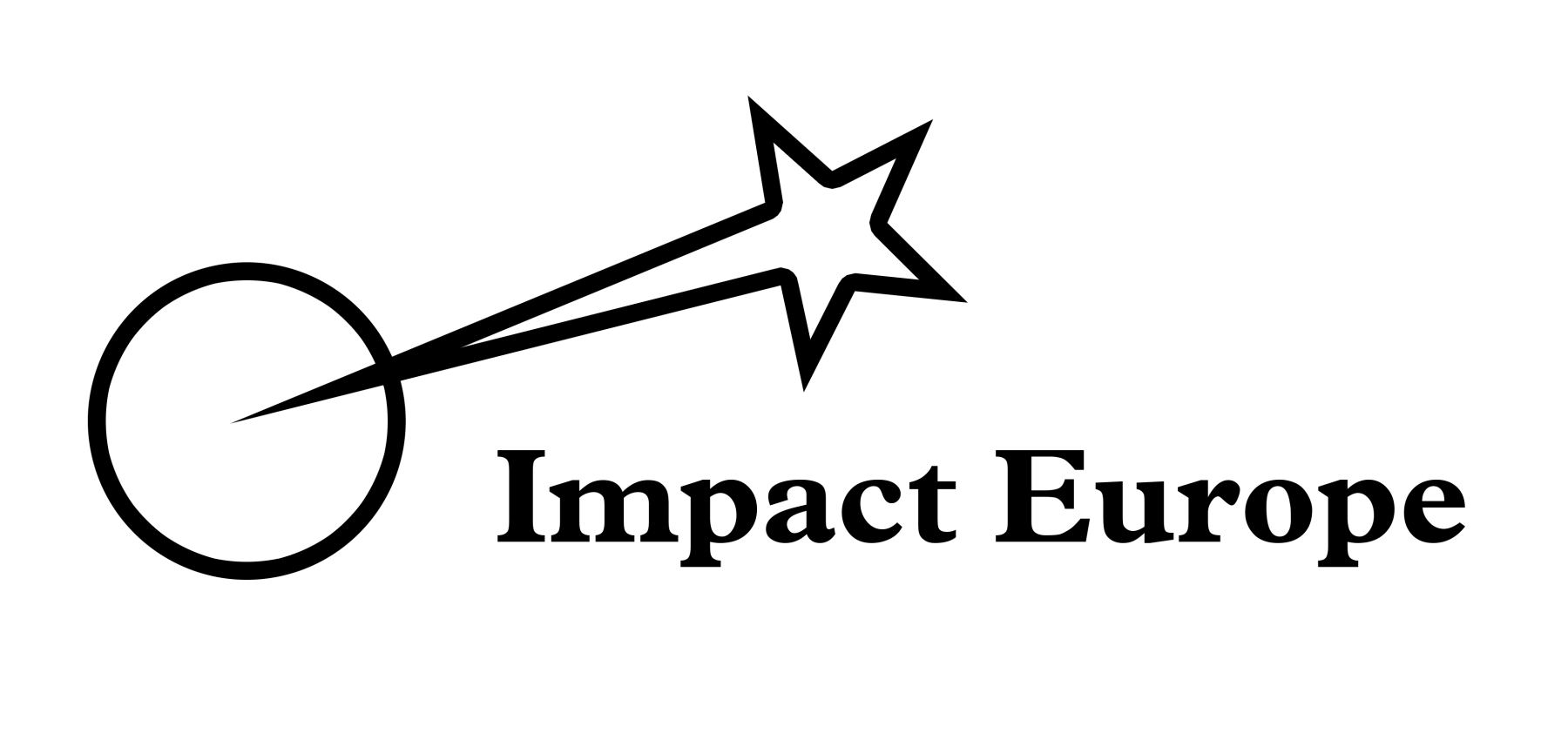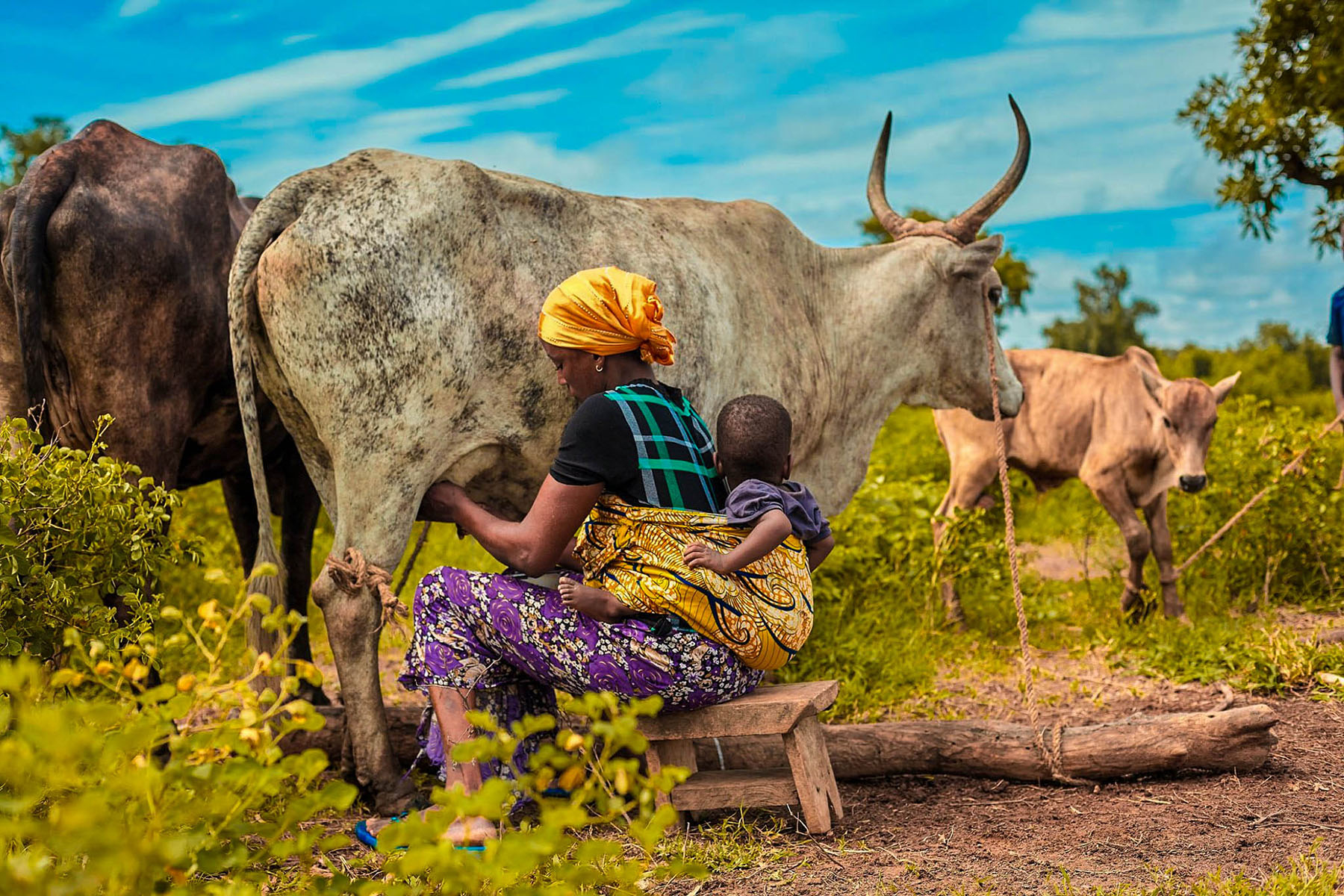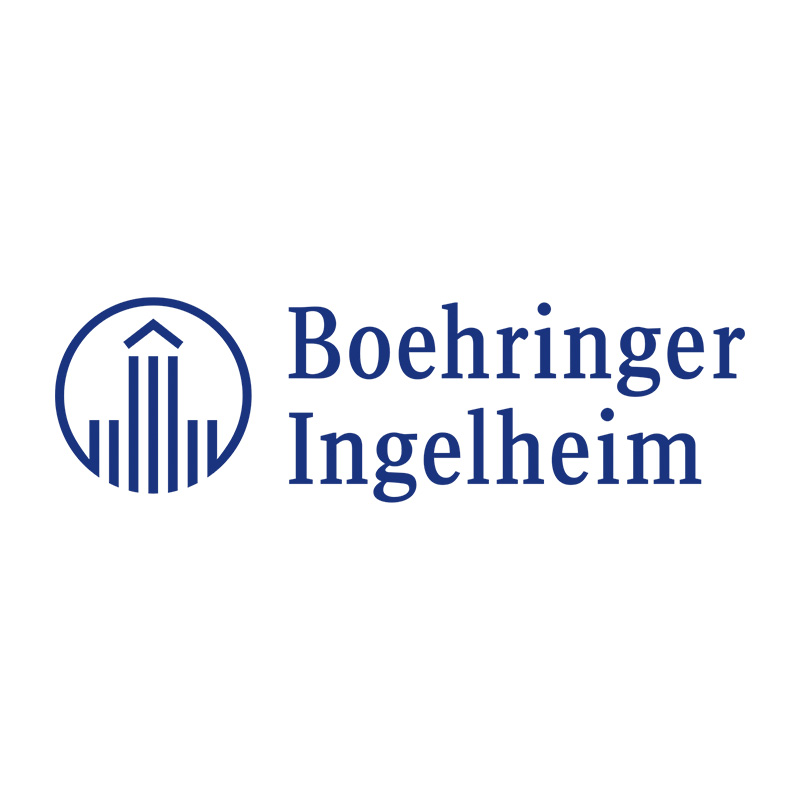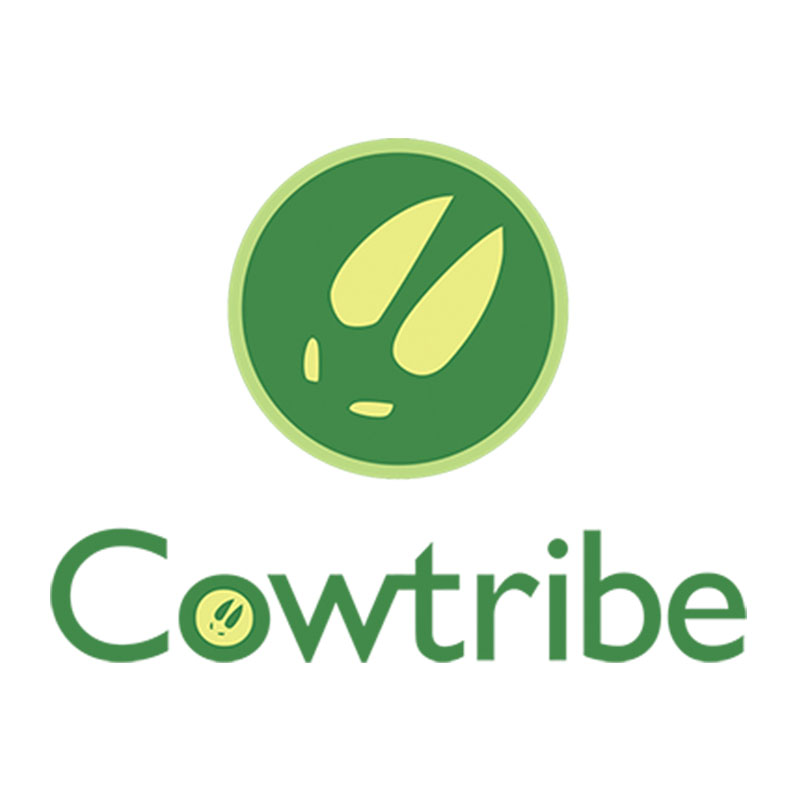A way out of helplessness
“I was born into a livestock keeping family, so I understand that not all the animals we keep would end up surviving. As a child, you wake up and then half of the chickens are dead, and you don't even know why. And then another time your favourite cow is dead. It’s an experience of helplessness.”
These are the words of Peter Awin, founder and CEO of Ghana-based CowTribe. They could just as easily come from one of the 11,000 farmers that benefit from CowTribe’s last-mile solutions for vaccine delivery in remote areas of Africa. Peter and the farmers share similar values. Together they work on ways out of helplessness.
It’s been a long journey from helplessness to vaccines delivered by motorbikes and, eventually, drones. The journey is fuelled by the right support. As an entrepreneur, Peter pairs big dreams with real, on-the-ground know-how, and luckily, he found a partner with the same mindset: Boehringer Ingelheim Social Engagement.
The right support
Boehringer Ingelheim Social Engagements (BI SE) was set up to contribute to Boehringer Ingelheim’s Sustainable Development Strategy to “impact the lives of 50 million people in vulnerable communities by 2030 through supporting social entrepreneurs and innovative solutions.”
BI SE draws on Boehringer Ingelheim’s 10 years’ experience in delivering social impact and supporting social entrepreneurs through their Making More Health initiatives. It marks a natural expansion by providing social impact financing to social entrepreneurs like Peter.
BI SE launched in 2022, with a remarkably fast setup, due in part to buy-in from senior management and close alignment with the social (S) part of Boehringer Ingelheim’s ESG strategy, called Sustainability for Generations.
From a strategic point of view, BI SE starts with the needs of social businesses: receiving access to funding at an early stage, which ideally helps to unlock co-funding from like-minded investors, as well as non-financial support. The ultimate goal for BI SE is to scale the social businesses to achieve long-term financial sustainability and social impact. As a first investment of BI SE, CowTribe represents an example of likeminded partnership and swift action in service of health – both animal and human.
Healthier cows, healthier humans
Peter wasn’t always a social entrepreneur. Before launching CowTribe, he was working for a livestock insurance company; as part of this work, he interviewed farmers about which policies best suited their needs.
“After speaking to 1,092 farmers,” said Peter, “we found out that 92% of them didn't really want insurance. They wanted a way to prevent their animals from dying.”
CowTribe prevents animals from dying. It does this by getting vaccines into the hands of some of Africa’s most hard-to-reach farmers. The key is technology that matches supply with demand: by efficiently aggregating the individual needs of farmers, starting with vaccination and veterinary services, it brings veterinarians and vaccine suppliers to rural communities which would otherwise remain cut off. This demand aggregation also enables lower prices, and thus allows smallholder farmers to afford such vaccines for the first time.
The goals of healthier cows, healthier humans and a healthier society is in CowTribe’s DNA. To understand that, it’s important to note the strong links between animal health and human health in rural communities:
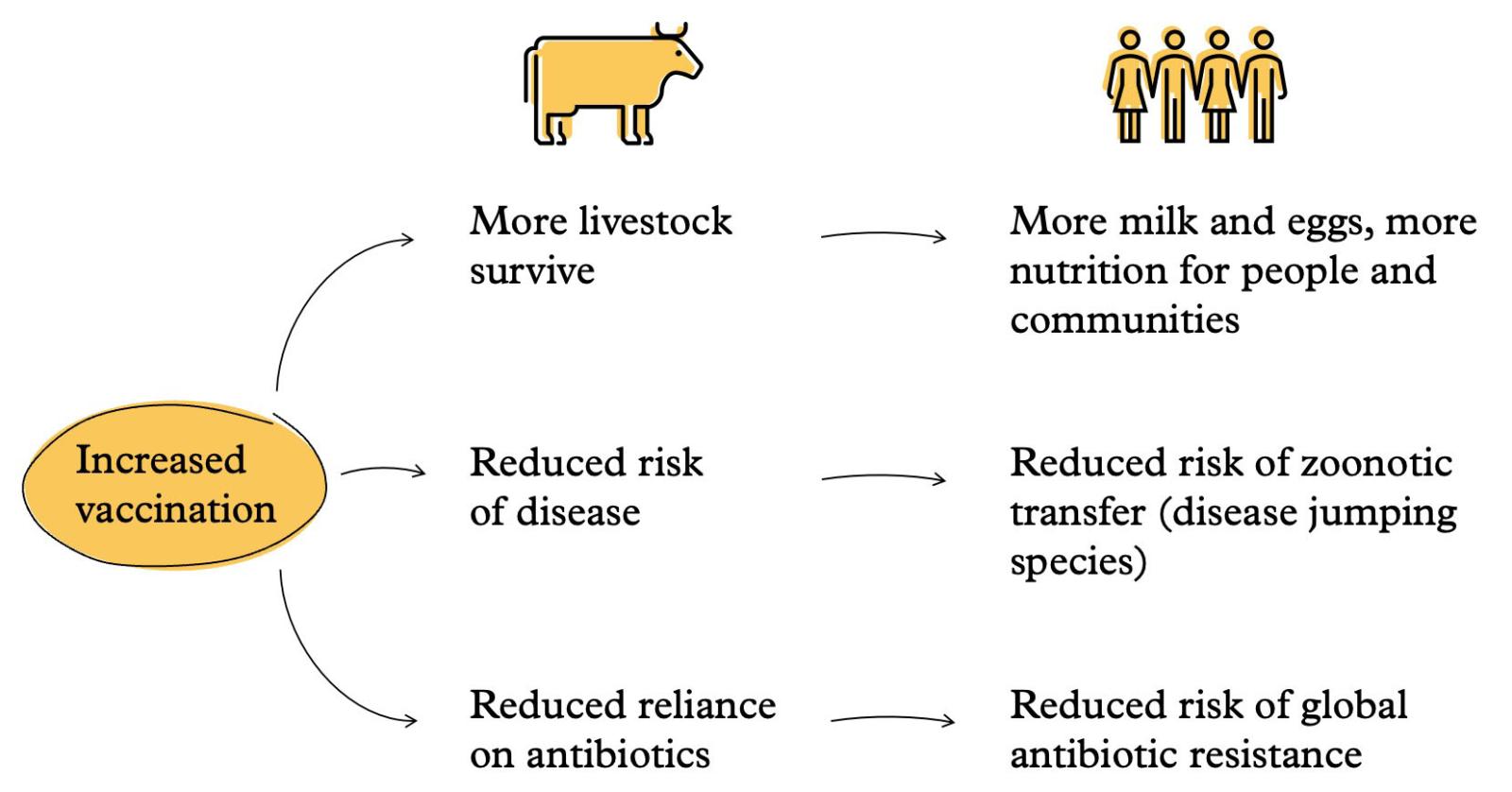
Some of these benefits for humans are direct results of animal health, some indirect, but in communities where livestock are a cornerstone of well-being, they all matter, as Peter explains:
“How many animals did not die? We count that as part of our impact measurement. And we try to trace that to how much income have we saved for these farmers.”
The social impact objective is easy to understand: building thriving communities through better animal health. This is the journey CowTribe and BI SE embarked on together.
Delivering vaccines to the most remote areas
How do you deliver a vaccine if there’s nowhere to warehouse it? Or if there’s no supplier willing to serve the community?
First you start from motorbike delivery and building up the warehouses, as well as supporting software yourself. Such is the ethos of last-mile delivery: the product has to get from A to B somehow. Achieving this aim, according to Peter, is often a question of bringing in partners who understand what it takes, how to get it done and, when seeking to build a sustainable business, how to get it done efficiently.
To get vaccines and other products stored closer to rural communities, CowTribe engages innovative partners like Zipline, the drone delivery company. This partnership was also established with support from Boehringer Ingelheim, which invited both CowTribe and Zipline to a workshop on innovative last-mile delivery methods.
Zipline has the potential to access 80% of CowTribe’s markets and has the additional benefit of warehouses with a level of sophistication necessary for vaccines. So far, results have validated the approach and a scale-up is in development.
But while financial support allows the exploration of these kinds of innovations, it’s the non-financial support that's often just as valuable.
Seats at the table
Post-investment, in December 2022, representatives of BI (both from the BI SE team and other parts of the organisation) traveled to Ghana to meet with Peter’s team. The guiding question for discussion:
What does an ideal CowTribe look like in five years?
Over several days, the collected stakeholders engaged in creating a strategic roadmap to guide operational improvements and business expansion in the coming years. The BI SE team engaged their colleagues who had expertise in CowTribe’s challenges. They brought experts in animal health, sustainability, logistics and IT – a pool of perspectives CowTribe wouldn’t have access to otherwise.
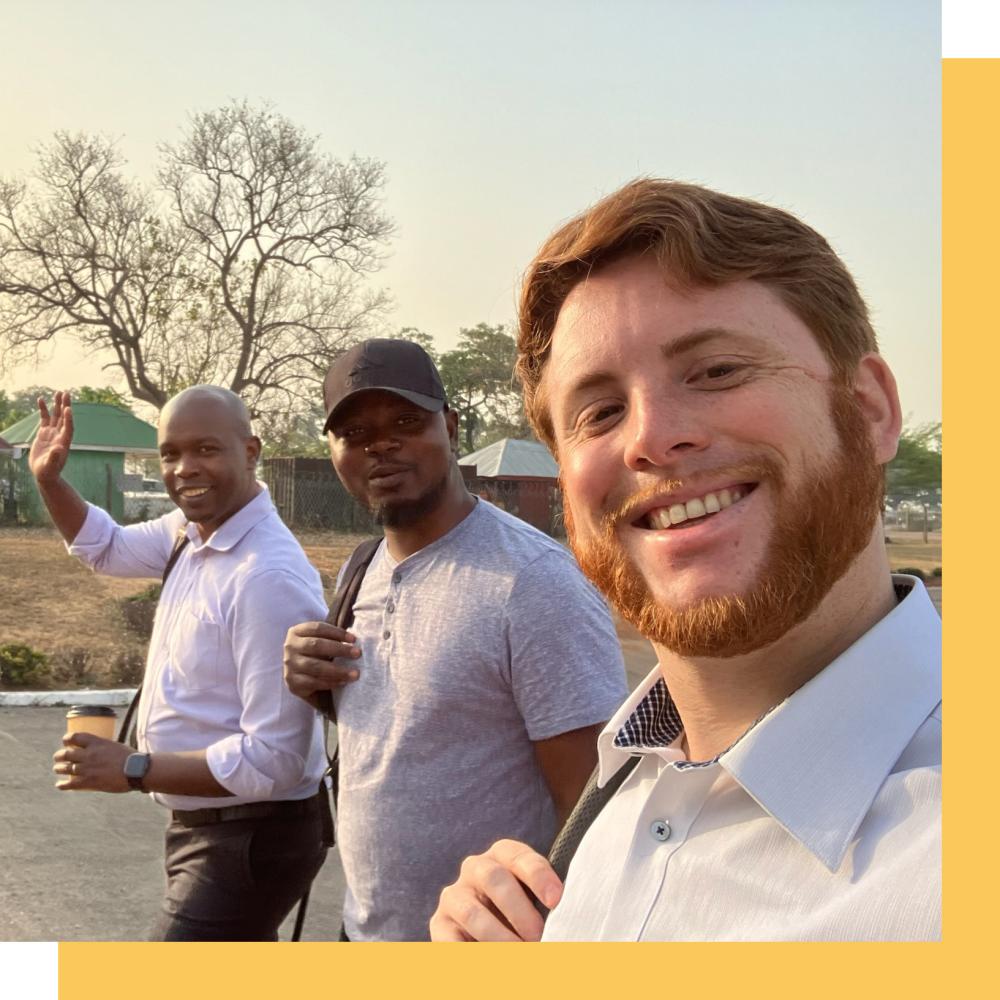
Additionally, BI brought in a strong partner on the ground: Villgro Africa contributed their valuable expertise in supporting African Social Businesses. Furthermore, EY was brought in to provide pro-bono support for improving the HR Strategy.
This is where the strands of employee engagement, non-financial support and a needs-based ethos all came together.
Speaking of BI SE, Peter said: “They are a partner asking us to take the lead and then they can support from behind, which is even more powerful. I'm an entrepreneur. I dream very big, and I wake up and then I'm like, ‘Oh, okay. So how do you get to this place?’ What we are currently doing is trying to align our current positions to the big vision.”
Peter stressed that his team and the Boehringer Ingelheim stakeholders both deeply understood the issue at stake: vaccine access for farmers in Africa. Such alignment and trust aided the strategic conversations that unfolded.
When drawing the distinction between financial and non-financial support, it’s often about the people. While BI SE funding offered working and growth capital for CowTribe, BI SE’s team and their colleagues formed a hands-on coalition of experts, enabling a fluid, expanded conversation on CowTribe’s future.
Needs-based support
The fact that BI SE could bring in experts from both animal health and logistics is a rare and special thing.
But it didn’t just happen by chance: it's an advantage of having an investment strategy closely aligned with Boehringer Ingelheim’s corporate objectives (for more on the distinctions and value of various corporate impact strategies, see our insights here). Robust employee engagement isn’t just great for CowTribe; it also supports one of Boehringer Ingelheim’s goals: to have up to 20k employees engaged in social projects & businesses by 2030.
What brings it all together is matching expertise and funding to need.
“Providing both financing and non-financial support tailored to a social startup’s needs is very important,” says Christian Bausch, Associate Director BI SE. “If you’re only choosing investments that fit a pre-defined model for technical support, you’re limiting your potential impact. By focusing on the needs of the social entrepreneurs, we can jointly find ways to maximise their impact.”
The support that BI SE offered CowTribe exemplifies this needs-based approach. In CowTribe’s case, the need and support were mainly strategic. However, as Christian pointed out, for future investees it could include any topic that helps the social business grow and scale their impact. BI SE strives to stay flexible and, with their experience and talent pool, they’re well-positioned to make it happen.
A to B
Maybe it's time the author of this article admits a personal connection: I’ve had the chance to work in transportation logistics technology before. I’ve also worked on a cattle ranch. And from these experiences I've noticed a common perspective between logistics people and ranching people.
They both see the world through the lens of A to B.
Logistics: move product. Ranching: move cows.
It’s a lens where you become acutely attuned to the things that stand in the way of moving your thing from A and B. Diseases and predators. Thousands of kilometres of scorching desert. A boulder in the middle of the road.
I've met some brilliant folks involved in logistics and ranching, and find that it’s a specific kind of brilliance: a way of seeing through the obstacles, understanding what it takes to get around them and having the will to do it.
These experts in logistics and ranching never do it alone. Sometimes it takes a whole village to muster cattle.
It takes a dedicated, wilful team to build tech to get vaccines to remote places.
It takes partners with vision, perspective, and experience.
Partnership: this is the other thing I’ve found in common with our ranchers and logisticians, and now I've found it rings true to people in the world of health – the BI SE and CowTribe teams – as well.
Move what stands in the way out of the way. In order to bring more health to communities and their animals.
Maybe it’s just a mentality associated to any successful journey, no matter who the people on the journey may be. To get from A to B, you need to bring along the people who know the obstacles. You need those who can get the boulder out of the road. And you need to stay focused on B.
B is a healthy cow in Ghana. Living and breathing. B is the people depending on that cow.
B is whatever the opposite of helplessness is. I think it’s strength.

